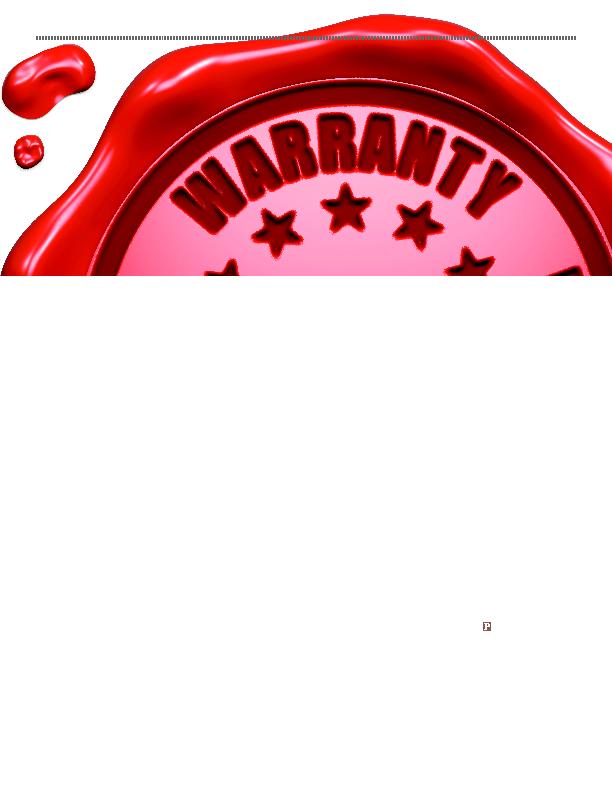
possible terms and conditions that the
Federal Trade Commission may require
to be included in a written warranty.
warrantor's name and address; all those
benefiting under the warranty; the
products or parts covered; the parts not
covered; a statement by the warrantor of
what actions they will take in the event
of a defect, at whose expense, and for
how long; a statement of the consumer's
responsibility; exceptions and exclusions
to the warranty; the procedure which
the consumer should follow to obtain
warranty service; information regarding
the availability of any informal dispute
settlement procedure (if there is one);
a description of the legal remedies
available to the consumer; and time for
performance under the warranty.
The written warranty must be made
available to the customer prior to
purchase. This does not mean you have
to actually provide it to the customer
but only that you make it available.
For example, a written warranty sticker
attached to the inside of a refrigerator
is satisfactory.
If your written warranty covers an
item costing more than $10.00, then you
must clearly title your warranty as either
or "limited warranty."
A full warranty meets the federal
minimum standards
first and all subsequent owners during
the warranty period. It is provided free
of charge. The customer cannot be
charged for costs of returning, removing
or reinstalling. If the warrantor is unable
to repair after a reasonable number of
attempts (interpreted by some courts
as two to three attempts), the customer
is entitled to either a replacement or
refund. There is no requirement that the
customer must do something, such as
return the warranty registration card, to
obtain warranty service.
A limited warranty does not meet
at least one of the federal minimum
standards listed at 15 U.S.C.A. §
2304(a). If the warrantor breaches a
limited warranty, the customer may or
may not be entitled to a replacement or
refund. The MMWA does not specifically
provide for remedies for a limited
warranty. Rather, the remedies are found
in each state's version of the U.C.C. One
feature of the MMWA, and the one of
most concern to businesses involved in
breach of warranty litigation, is its fee
shifting provision whereby successful
claimants may be awarded legal fees
and costs.
warranty, then you may limit the duration
of any implied warranties to the duration
of the limited written warranty. An
example of this is a vehicle manufacturer
often times will limit the implied
warranties to the 3 years/36,000-mile
limited written warranty. The limitation
must be clear and prominently displayed.
If you are providing a full written
warranty, you cannot limit, disclaim or
modify the implied warranties.
It is also possible to have a hybrid
warranty
clearly labeled.
As the saying, "a stitch in time saves
nine" goes, if you currently offer express
warranties with your product or are
contemplating offering a warranty to gain
that competitive edge, now is the time to
check if your warranty is up to par with
your state's U.C.C. and the MMWA.
In our increasingly litigious society,
taking such preventive measures is a
routine necessity.
2 15 U.S.C.A. § 2302
3 15 U.S.C.A. § 2304(a) lists the Federal minimum
5 15 U.S.C.A. § 2305.